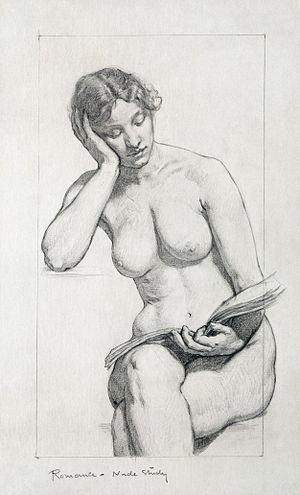Laura B Gschwandtner is married, the mother of three daughters, a writer, magazine editor, artist, and co-owner with her husband of an integrated media business.
Her work has appeared in various journals including Del Sol Review and WritingRaw.com. One of her prose poems has been included in an anthology called Oil and Water and Other Things That Don’t Mix, which is a collection being published to support victims of the BP oil spill in the Gulf.
She has received awards for three different stories from the
Writer’s Digest Annual Competition in the mainstream literary category and the Lorian Hemingway short fiction competition, and
was short listed for a Tom Howard Short Story Contest.
She also founded TheNovelette.com which offers free themed writing contests with prizes for emerging writers.
She lives in Virginia, raises orchids. She likes plants, hummingbirds, Bald Eagles, really great writing, and art.
She is an avid kayaker (touring) and grew up fishing in the Florida Keys.
Tell us about The Naked Gardener in a few sentences.
The Naked Gardener introduces artist Katelyn Cross who gardens naked. Lives in a chicken coop. Takes five gal pals on a canoe trip in the wilds of northern VT. Catches fish with her bare hands. Body paints. And frets over whether marrying Greg Mazur means losing herself within a marriage.
How did you come to write this particular book?
At a certain point in my life, I knew three women who gardened naked. They all had different takes on why, so I began to think about a woman named Katelyn Cross who goes to her garden naked and what that might mean and in what ways it would be liberating for her and important in her life. I chose one of the women I knew as the inspiration for the environment Katelyn creates. The garden symbolizes her world and the rocks in it keep getting in her way. So she has to deal with life's obstacles, even in her garden. Stripping off her clothes is an act of disencumbering, of removing outer layers that restrict the inner person.
When Katelyn says: “I never told anyone. Just kept going to my garden naked. Like some spirit hovering over the land,” she is referring to the spirit within that needs a voice.
If you have a favourite character in your novel, why that particular one?
Near the end of the book, I introduce an elderly woman who speaks her mind and is undaunted by the troubles and sorrows life has thrown at her. I love her particularly because she loves life so much. But I love all my characters.
Where and when is your novel set and why did you make these specific choices?
It’s set in northern Vermont but there are scenes in Mexico and references to Virginia.
I chose a setting and references to other places I know well.
How can people buy your book?
What qualities make a successful writer?
Tenacity, talent, internal courage
How do you set about writing a piece?
I start. I think. I write. I rewrite. I try to figure out what I am writing about – what the piece is at its core. Writing fiction is like a big puzzler.
Beginning writers make many mistakes; what do you think is the most harmful?
Giving up.
To what extent are grammar and spelling important to a writer?
Grammar very … but spelling not so much. Scott Fitzgerald was an awful speller. It’s theorized he had a spelling disorder.
How much revision of your MS do you do before you send it off?
A lot.
How do you know where to begin any given story?
I rewrite beginnings more than any other part of the book. The beginning should set up the story you’re about to tell.
“It was the best of times; it was the worst of times.”
“Happy families are all alike; every unhappy family is unhappy in its own way.”
What sort of displacement activities keep you from actually writing?
Oh,
Haagen Dazs mint chip ice cream is an awful distraction.
Do you have support, either from family and friends or a writing group?
Not specifically but it is important to have writer friends as they’re the only people who really understand it when you talk about people you’ve invented as if they are real people. If you go around doing that with non writers, well, you might find yourself in a very different kind of support group.
How long does it normally take you to write a novel?
It varies. I wrote The Naked Gardener in less than a year. But I’ve been working on something else for about four years now on and off.
Is there any aspect of writing that you really enjoy?
I love figuring out the characters and the plot and how to meld the writing with those elements.
Do you think writing is a natural gift or an acquired skill?
It’s some of both but to be a professional at it I think it’s more the latter. It’s like being a musician. You have to play the scales for years and years. I heard Horowitz in his eighties say that he still played the scales every day. I don’t know of any child genius writers.
What single piece of advice would you give to writers still hoping to be published?
Just keep at it. And if you believe in what you’re doing, and can’t get an agent for whatever reason, don’t let the outside world dictate how you feel about yourself as a writer & get yourself into eBooks.
Do you have a website or a blog that readers can visit?
Where do you write?
I sit at my desktop in front of the big windows in my home studio and pound away with the four fingers I use to type – badly. That’s the one thing I wish I had learned as a young person – touch typing. My typing is horrendous.
Thank you, Stuart. This was fun!














